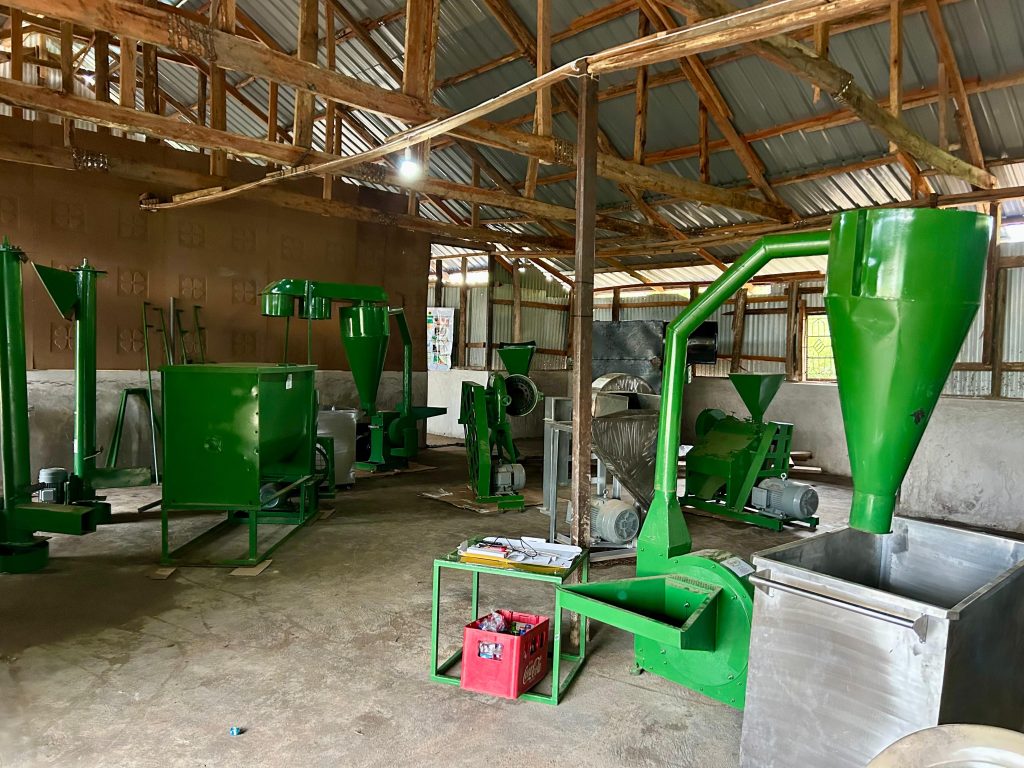
Strengthening the Cassava Value Chain for Sustainable Food Security
The NRF-funded project, Commercialization of Cassava Value Chain for Improved Food and Nutritional Security and Animal Feed Component, is a transformative initiative implemented by Masinde Muliro University of Science and Technology (MMUST). The project aims to enhance the cassava value chain’s commercialization to improve food and nutritional security while supporting the animal feed industry. By promoting cassava as a key staple and value-added product, the initiative seeks to bolster food security by increasing availability, accessibility, and affordability of nutritious food products.
Project Objectives
The project is guided by three specific objectives:
- Enhancing cassava production through the use of farmer-preferred disease-free planting materials, ensuring higher yields and a stable food supply.
- Developing highly nutritious blended and fortified cassava products tailored for both human and livestock consumption, contributing to improved dietary diversity and food security.
- Empowering women and youth by engaging private sector players in the cassava value chain, fostering economic resilience and household food security.
To achieve these goals, the project has partnered with Agroservice, a private sector entity based in Busia, to aid in the production and commercialization of cassava products.
Key Activities and Progress
The project has made substantial progress in implementing critical activities. Key achievements include:
- Planning and Benchmarking: A series of strategic planning meetings have been conducted to streamline operations. Additionally, a benchmarking visit to Kilifi provided insights into best practices for cassava production and processing.
- Infrastructure Development: Site preparation, value addition facility upgrades, office renovations, and enhancements in water and power infrastructure have been undertaken to support smooth project implementation.
- Product Development and Validation: The first phase of product development and validation has been completed, ensuring that cassava-based food and feed products meet quality standards and can contribute to enhanced food security.
- Procurement and Machinery Installation: Due diligence was performed before acquiring essential machinery, ensuring that high-quality equipment is in place.
- Community Engagement: Farmer mobilization efforts are ongoing to encourage participation in the cassava value chain, ultimately strengthening local food production systems.
Project Milestones and Community Impact
Significant milestones have been achieved, strengthening both operational capacity and stakeholder engagement:
- Baseline Data Collection: Surveys were conducted to document community needs and expectations, ensuring that the project aligns with local realities and supports food security objectives.
- Land Acquisition: The project successfully secured land from the local community, highlighting strong grassroots support and commitment to sustainable food production.
- Office Renovations and Local Employment: The engagement of local labor for site preparation and infrastructure upgrades has fostered positive relationships with the community, reinforcing economic stability and food security.
Next Steps and Expected Impact
While the project is yet to register direct impact, upcoming activities such as farmer training and capacity building for youth operators of the installed machinery are expected to drive long-term benefits. By equipping farmers and youth with technical expertise, the project will contribute to sustainable cassava production, value addition, and economic empowerment within the region, thereby enhancing food security and resilience.
Through strategic collaborations and community involvement, the Commercialization of Cassava Value Chain for Improved Food and Nutritional Security and Animal Feed Component project is set to revolutionize cassava production, ensuring food security, improved nutrition, and economic growth in Busia and beyond.